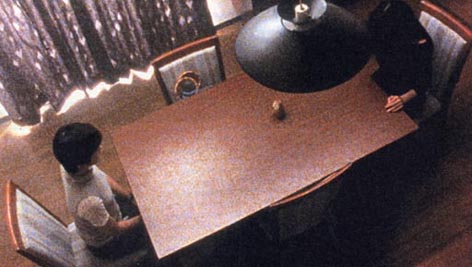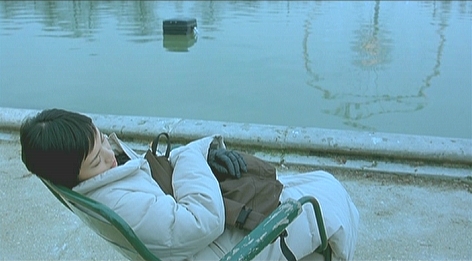
A-
Directed by Peter Raymont
Although the fictionalized version of General Romeo Dallaire's Governor General's Prize winning account of the Rwandan genocide was uneven and rather poorly put together, the documentary version of the the book, if you can call it that, succeeds brilliantly as both an account of the UN's failures to stop one of the 20th century's biggest bloodbaths as well as the unbelievable emotional torment experienced by Dallaire during and after the genocide.
Raymont's "Shake Hands with the Devil" follows Dallaire as he travels back to Rwanda to mark the 10th anniversary of the genocide in 2004. As the camera follows Dallaire and his wife, Dallaire and others who were involved in either attempting to prevent the genocide or in document it, from President Paul Kagame to BBC foreign correspondent Mark Doyle, recount their version of the events leading up to the genocide and how it unfolded over 100 bloody days. The film generally takes a sympathetic views towards Dallaire's plight and paints him as a sort of tragic figure who did all he could to save Rwanda but was prevented from doing so by the UN's legendary incompetency and limp wristedness. This is a fairly accurate picture of the situation, and it is good to see that Dallaire is finally being recognized as what he was--a man putting his life in danger and fighting ridiculous odds in an attempt to help out his common man.
"Shake Hands with the Devil" generally does a good job at allowing Dallaire to tell his own story and does not really infuse any overt policking in the film, aside from implying that the West should be ashamed at themselves and that the genocide could have been stopped if wealthy nations such as the United States and Canada had of given a damn. That, however, is not politicizing the situation, only revealing the truth which was that fo a horrible failure by western countries and the international community as a whole to protect innocent civilians. Some of the most poignat moments in the documentary come not from Dallaire's recollections, which are touching in their own way, but in some of the old news footage of the genocide. In one rather chilling scene, Belgian soldiers are busy evacuating their own civilians while a number of Tutsis plead for help, attempting to explain that they are about to be killed by the Interahamwe. The Beglian soldiers wanton disregard for their plight perfectly illustrates the rather deplorable actions commited by Western nations while Rwanda was spiralling into chaos.
The documentary unforunatelyu tails off towards the end and Raymont seems to have been unable to properly edit the film, but I certainly understand his reticence to cut certain moments from the film since "Shake Hands with the Devil" stands primarily as a documentation of the atrocity and there really isn't much impetus to tidy up a film dealing with such a horrific act into a manageable, watchable package. Despite this, "Shake Hands with the Devil" is an important film and serves to highlight the continued plight of the Rwandan people as well as General Dallaire's continued search for peace in the wake of such atrocities.






